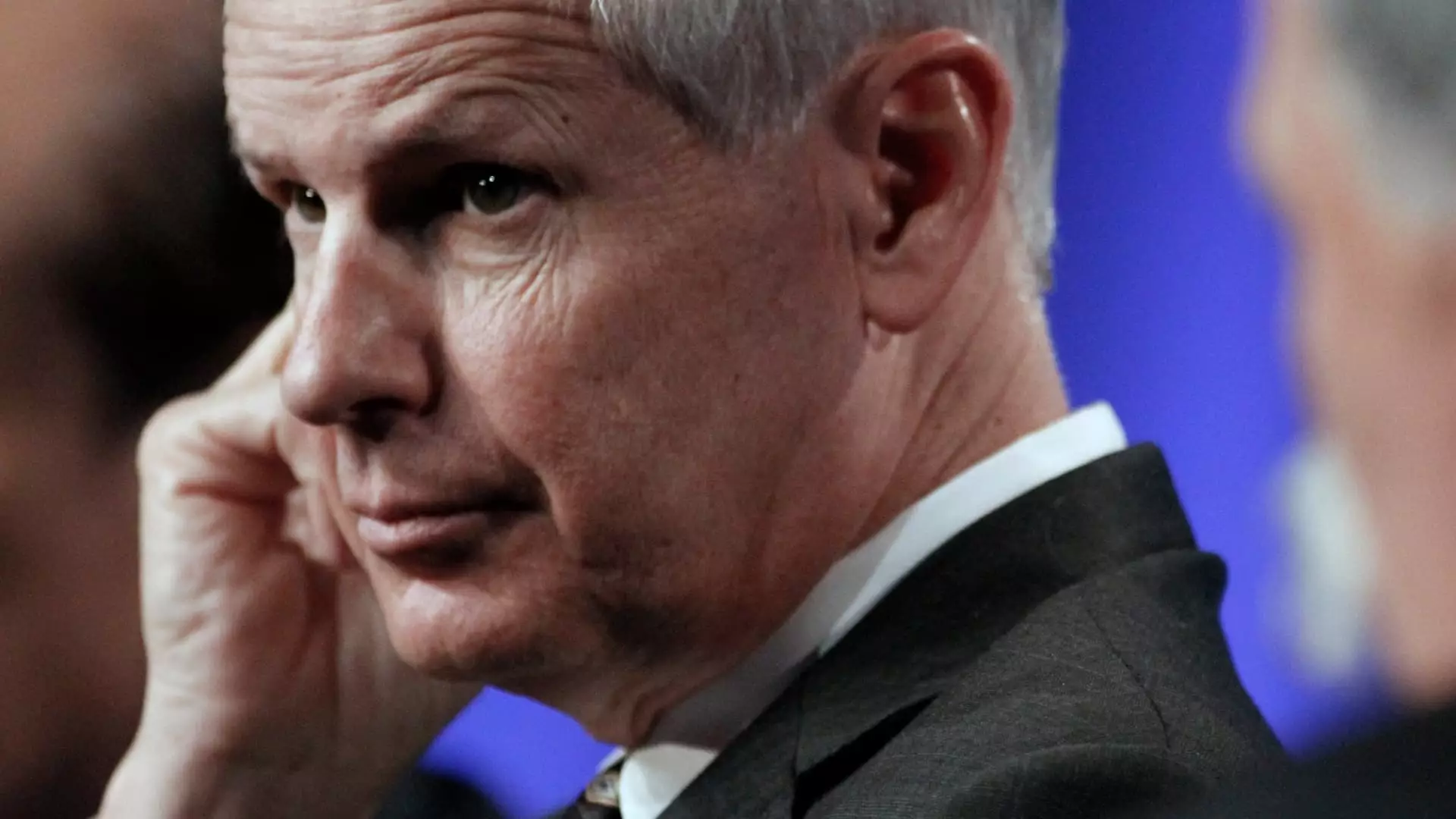Charlie Ergen, a stalwart figure in the pay-TV industry, is on the verge of relinquishing control of a business he has nurtured for over four decades. EchoStar, the parent company of Dish Network, is reportedly engaged in advanced discussions to sell its satellite TV operations to rival DirecTV. This potential deal, driven by a precarious financial situation, reflects the ongoing evolution of an industry struggling to adapt to changing consumer preferences and technological advancements. For many, this merger would signal the end of an era marked by traditional cable and satellite offerings.
The urgency behind this transaction is largely rooted in EchoStar’s deteriorating financial health. With a significant debt of $1.98 billion maturing in November and a cash reserve of just $521 million as of the end of June, the company’s precarious position is prompting this potential sale. The prospect of bankruptcy looms large, leading analysts to speculate that EchoStar may seek new capital imminently. Craig Moffett, a renowned analyst, highlighted the challenging financial landscape, indicating that bankruptcy might be the most likely scenario within the next few months if the company doesn’t raise new funds.
The ongoing negotiations with bondholders to refinance debt have already proven unsuccessful, adding another layer of complexity to EchoStar’s situation. This financial instability is compounded by negative cash flow projections for the remainder of 2024, which have left investors and stakeholders increasingly concerned about the company’s viability.
Discussions between EchoStar and DirecTV suggest a structured all-cash deal, with estimates valuing the transaction at over $9 billion. The acquisition would encompass not just the satellite TV arm but also Dish Network’s digital business, Sling TV, and associated liabilities. However, the integration of these two ecosystems poses significant challenges. With significant losses in subscriber numbers over recent years, both companies have been under mounting pressure to retain their user bases amidst fierce competition from streaming giants such as Netflix, Disney+, and Hulu.
Satellite TV has faced steep decline, losing customers to more flexible and cost-effective streaming services. EchoStar’s Dish Network, with approximately 6.1 million satellite subscribers and 2 million Sling TV customers, illustrates this trend. Similarly, DirecTV’s subscriber roster has dwindled from 15.4 million at the time of AT&T’s acquisition in 2015 to around 11 million today. The need for both companies to innovate and pivot towards streaming solutions is apparent, particularly as they seek to attract a younger, more tech-savvy demographic.
The ongoing discourse surrounding a potential merger is not novel; speculations have circulated about a union between these two companies for years. A noteworthy attempt in 2002 was thwarted by regulatory challenges, creating skepticism about the feasibility of this deal. Nevertheless, the current push is motivated by the pressing financial imperatives faced by EchoStar and the shifting sands of consumer behavior.
Streaming services, which allow for greater flexibility and on-demand content, have fundamentally altered the way audiences consume media. DirecTV, which is working to dispel notions that its services are exclusively satellite-based, is investing in enhancing its streaming offerings. Recent disputes about content distribution, such as the near two-week blackout of ESPN for DirecTV customers, underscore the complexities of navigating partnerships in today’s media environment.
The proposed merger could be an effort to consolidate resources and address threats from agile streaming platforms. Through collaboration, both firms may enhance their competitive edge, streamline operations, and focus on developing tailored content packages that meet the demands of modern consumers.
The possible sale of Dish Network to DirecTV signifies more than just a financial transaction; it marks a pivotal moment in the evolution of the pay-TV landscape. With traditional models under siege and consumer preferences shifting toward expansive, flexible digital options, companies must navigate their futures carefully. The potential union of these two titans could serve as a strategic lifeboat for EchoStar while allowing DirecTV to enhance its service offerings. Whether this merger comes to fruition, however, remains uncertain amid the complex interplay of financial pressures, consumer trends, and regulatory scrutiny that define the current media landscape.


Leave a Reply